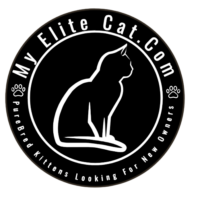Nourishing Your Feline Friend: A Guide to Cat Food
When it comes to our beloved feline companions, their health and well-being are of the utmost importance. One of the key factors in maintaining a happy and healthy cat is providing them with the right nutrition. In this blog post, we’ll explore the world of cat food, from understanding their dietary needs to making informed choices for your furry friend.
The Importance of Quality Nutrition:
Just like humans, cats require a balanced and nutritious diet to thrive. Proper nutrition not only supports their physical health but also influences their energy levels, coat condition, and overall longevity. Providing high-quality cat food is one of the most significant ways to show your love and care for your feline friend.
Understanding Your Cat’s Dietary Needs:
Cats are obligate carnivores, which means their diets primarily consist of meat. They need essential nutrients like protein, vitamins, and minerals to maintain muscle mass, promote healthy skin and fur, and support their immune system. Understanding their specific dietary requirements is crucial to selecting the right cat food.
Types of Cat Food:
There are several types of cat food available, each with its advantages:
-
Dry Cat Food (Kibble): This type of food is convenient and has a longer shelf life. Look for high-quality kibble with meat as the main ingredient.
-
Canned Cat Food: Canned food offers higher moisture content, which can be beneficial for cats prone to urinary tract issues. It’s also more palatable for some cats.
-
Raw or Homemade Diets: Some cat owners opt for raw or homemade diets. While this can be tailored to meet your cat’s specific needs, it’s essential to consult with a veterinarian to ensure it’s well-balanced.
Reading Labels:
When selecting cat food, always read the labels carefully. Look for brands that list meat as the primary ingredient and avoid those with excessive fillers, artificial additives, or preservatives. Additionally, consider your cat’s age, activity level, and any dietary restrictions when choosing the right formula.
Consulting Your Veterinarian:
Every cat is unique, and their dietary needs may vary. It’s advisable to consult your veterinarian for personalized recommendations. Regular check-ups can help ensure your cat’s nutritional requirements are met as they grow and age.
Conclusion:
Feeding your cat the right food is an essential aspect of responsible pet ownership. It’s a way to keep them happy, healthy, and full of vitality. With a well-balanced diet and plenty of love and care, your feline friend will thrive for years to come.
Remember, the quality of cat food you choose plays a significant role in their overall well-being. Invest in their health, and you’ll be rewarded with a happy and contented companion by your side.



